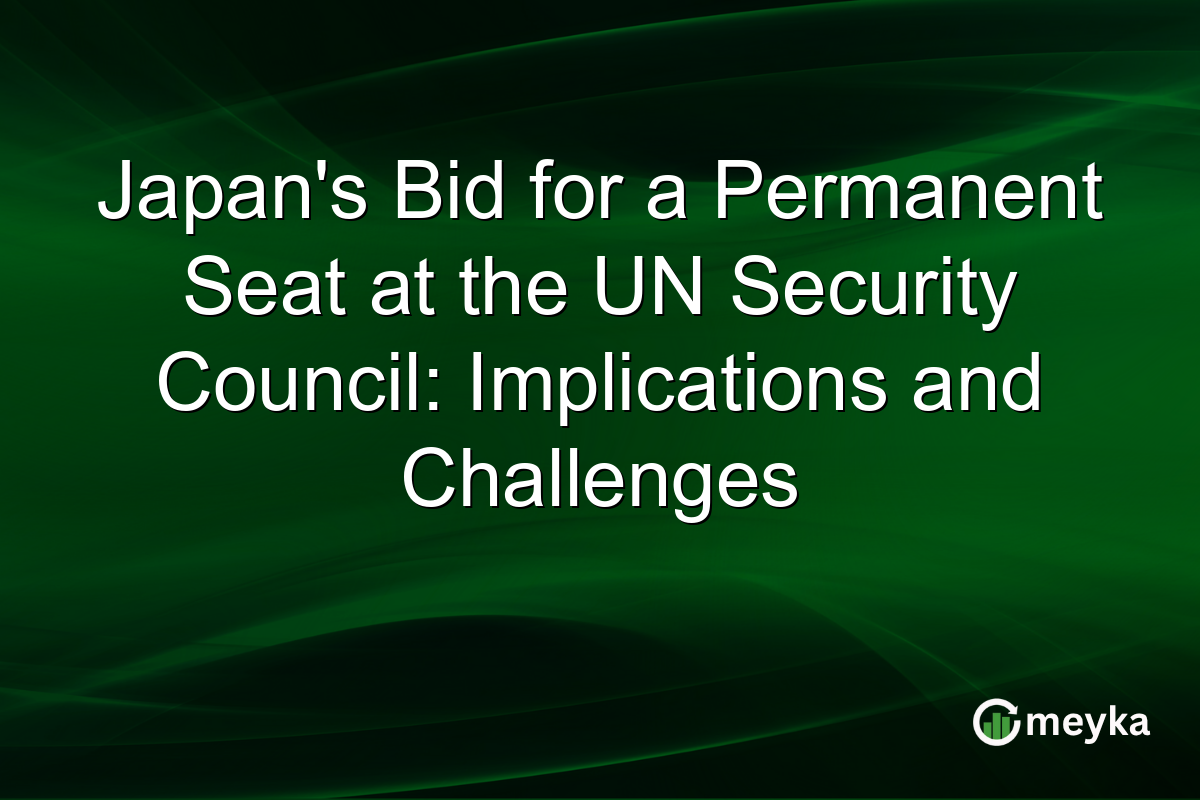Japan’s Bid for a Permanent Seat at the UN Security Council: Implications and Challenges
Japan’s pursuit of a permanent seat on the United Nations Security Council has gathered momentum. As of November 20, 2025, discussions are intensifying around the geopolitical and diplomatic significance of this move. The bid underscores Japan’s growing influence in international politics and highlights the ongoing debate over UN Security Council reform.
Continue Reading on Meyka
This article is available in full on our main platform. Get access to complete analysis, stock insights, and more.
Read Full Article →





